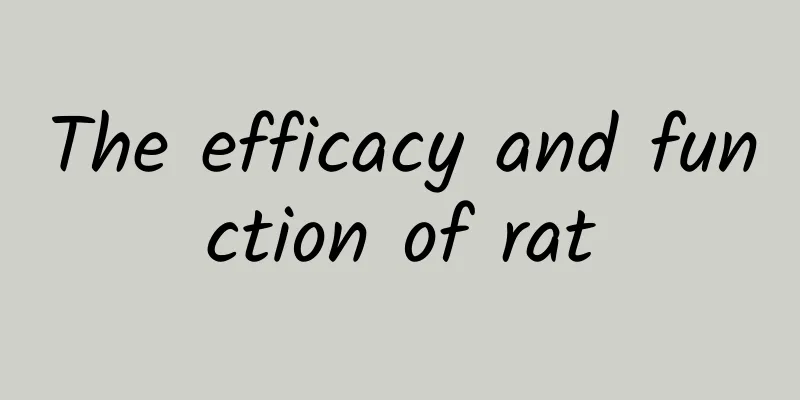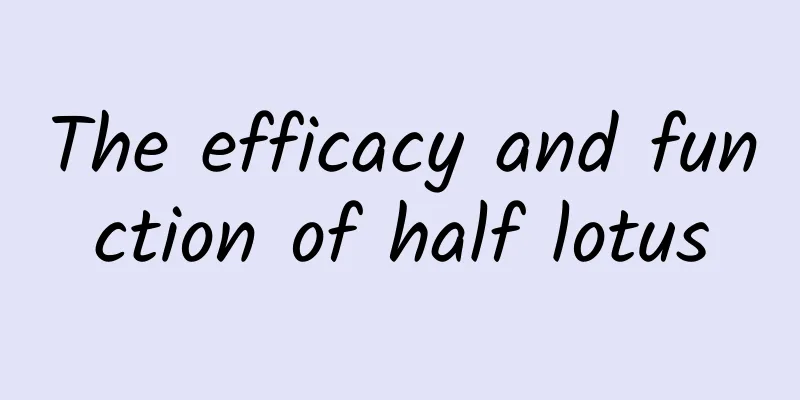The efficacy and function of Dingguo leaves

|
The development of Western medicine has brought some crises to traditional Chinese medicine. But traditional Chinese medicine still has many magical aspects. Let’s talk about the effects and functions of the Chinese medicine Dingguo leaves. [Source] Medicinal material source: The leaves of the plant Pseudostellaria spathulata of the Melastomataceae family. 【Original form】 Shrub, 30-150cm high. The stem is cylindrical, much branched, densely covered with rusty fine hairs and sparse small glandular dots when young. Leaves opposite; petiole 7-23mm long, rusty pubescent and sparsely covered with small glandular dots; leaf blade papery, ovate or lanceolate-ovate, 6.5-15cm long, 2-7cm wide, apex acuminate, base cordate to rounded, with fine shallow wavy teeth or entire, leaves almost glabrous above, only rusty pubescent and with small glandular dots on the veins below; 5 basal veins. Flowers bisexual, 4-merous; cymes forming panicles, terminal, inflorescence, pedicels and calyx all covered with fine pubescence and small glandular dots; pedicels 2-5mm long; calyx funnel-shaped, with 4 edges, 4-5mm long, lobes spoon-shaped, 2-3mm long, rounded at the apex; petals pink to purple-red, oblong, acuminate at the apex, about 5mm long, 1.5mm wide; stamen filaments about 6mm long, glabrous, anthers linear, curved, about 6mm long, slightly swollen at the base, presenting inconspicuous tubercles; ovary semi-inferior, ovate, with 4 small protrusions at the apex, glabrous. The capsule is elliptical, with 4 longitudinal cracks, and is covered by a persistent calyx. The persistent calyx is covered with small glandular dots, about 4 mm long and 2.5 mm in diameter, and is often crowned with persistent sepals. The flowering period is from June to August, and the fruiting period is from August to November. [Habitat distribution] Ecological environment: Grown on hillsides at an altitude of 100-1600m, under dense forests in valleys, on wet roadsides or in bushes. [Properties] Identification of properties: The leaves are papery, often wrinkled and broken, yellow-green on the upper surface, dark green on the lower surface, lanceolate to ovate-lanceolate or ovate, gradually pointed at the apex, rounded or slightly cordate at the base, 5.2-15.0cm long, 1.9-7.0cm wide, entire or with fine wavy teeth, 5 basal veins, glabrous on the leaf surface, with scattered small yellow scales on the back; petiole 5-20mm long, densely covered with fine soft hairs and small scales. 【Nature and flavor】 Astringent; neutral 【Function and indication】Hemostasis; leucorrhea. Bleeding due to major trauma; leucorrhea [Usage and Dosage] For oral use: decoction, 6-15g. For external use: take appropriate amount and mash fresh product for application. 【Excerpt】 Chinese Materia Medica This article introduces some basic knowledge about the medicinal material Dingguo leaves. Dingguo leaves are very effective in treating some related diseases of the human body. Moreover, the leaves of the dingguo tree have a certain regulating effect on the body and can be consumed in moderation at ordinary times. |
<<: The efficacy and function of Dingguicao [picture]
>>: The efficacy and function of dog bubble grass
Recommend
Beware of "Parrot Fever"! A man slaughtered a chicken and almost died
The weather is getting colder Fever, headache, ru...
2023, the hottest year on record?
2023 could be the hottest year on record Recently...
What should not be taken with Panax notoginseng powder
Panax notoginseng is a very common Chinese herbal...
Is life span closely related to drinking? A survey of 11,558 drinkers finally revealed the answer
During holidays, it is not uncommon to hear news ...
The efficacy and function of red purple beads
The essence of traditional Chinese medicine is to...
What is carrageenan and what role does it play in ice cream?
Recently, "ice cream assassin" has beco...
What are the benefits of pine pollen?
Why does a person always get sick? It is because ...
It turns out that there is such a big difference between snow accumulation and snowfall? | Expo Daily
It turns out there is such a big difference betwe...
The efficacy and function of dry paint [picture]
Modern medical research believes that dry lacquer...
Frequent early awakening may be a disease. What time is considered "early"?
Have you ever had this experience: you woke up be...
What are the medicinal values of pine
Pine trees are actually seed plants. Many people ...
Workers flock to traditional Chinese medicine hospitals for massage, and doctors urgently recommend...
Review expert: Wang Linyu, deputy chief physician...
Redstone China: The most beautiful scenery
Color is a simple and straightforward observation...
What is the hottest healthy food in 2021? You must be eating it every day!
In January this year, Dingxiang Doctor issued a q...
The Chinese people’s “cosmic-level” romance must be seen one by one!
The sky is wider than the earth Wider than the sk...









